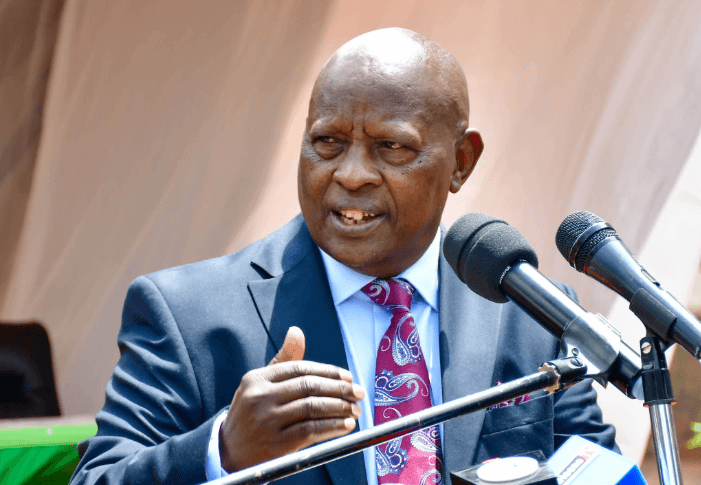It’s not an exaggeration to state that many Kenyans don’t understand the work Kenya’s Ministry of Foreign and Diaspora Affairs does. This conclusion is a consequence of MFDA’s failure to manage and communicate the country's global foreign relations.
The Fourth Schedule of the Constitution identifies foreign affairs and foreign policy as a function of the national government. This is mandated through Executive Order No. 1 of June 2018, which identifies 20 functions for the ministry.
Three very important functions are management of foreign policy; projection, promotion and protection of Kenya’s interest and image globally and official communications on global foreign relations. These three functions make MFDA a virtual library, a control tower and the only authentic source of information on the country's foreign relations.
The failure to perform the functions effectively has placed Kenya in an awkward and embarrassing situation.
Let me expound on this through an analysis of President Ruto’s recent visit to Japan.
On January 26, the Ministry of Foreign Affairs of Japan released the information that “H.E. Dr. William Samoei Ruto, President of the Republic of Kenya, and his spouse, Mrs. Ruto will pay an Official Visit to Japan from 6 February to 9 February." There was no similar brief from MFDA, although some local newspapers reported this from various sources.
On February 8, MOFA announced the outcome of the presidential visit, of course, from Japan’s perspective. Kishida stated that Japan would like to further strengthen bilateral relations with Kenya and to work closely to promote the “Free and Open Indo-Pacific.”
Kishida’s emphasis on FOIP is important. This is confirmed in an article published on February 2 by the Australian Strategic Policy Institute: “the centre of gravity of the world’s economy has shifted to the Indo-Pacific region, with close to 50 per cent of the world’s GDP and 60 per cent of the world’s population. Peace and stability in this region are crucial for Europe and the world.”
FOIP was also part of the 13 Japanese foreign policy 2024 priorities presented to the 213th session of the Diet by Yoko Kamikawa, Japan’s Foreign Affairs Minister on January 30.
Unfortunately, Kamikawa did not have a policy on Kenya or Africa, and it’s unfair to impose Japan’s priorities on Kenya.
Although MFDA has not informed Kenyans what transpired during that visit, MOFA confirms that four documents were exchanged. One on Kenya Medical Research Institute. Another was a Memorandum of Cooperation on Information and Communication Technology.
The other two documents are: Memorandum of Cooperation on Public Private Partnership; and “Statement of Intent on Defence Cooperation and Exchanges between the Ministry of Defence of Japan and the Ministry of Defence of the Republic of Kenya.” This last one could place Kenya on a warpath with FOIP countries.
Kenyans, of course, have read various versions of the outcome of this visit from different sources, each highlighting own interests, but nothing from the custodian of Kenya’s foreign policy and global relations.
Now, there is an inherent danger when MFDA fails to manage Kenya’s foreign policy and communication, which manifests in disinformation and propaganda. This is clearly demonstrated by what happened after the signing of MOCs. As confirmed by MOFA, “After the document exchange ceremony, the two leaders held a joint press occasion.” No more details are given, for obvious reasons
However, the cat is out of the bag the next day. Kyodo News, the leading news agency in Japan, and distributor of news to all media networks since 1945, published what was said during the joint press occasion: “Kishida also told Ruto that Japan will assist Kenya in restoring its financial health, which has been strained by loans from China for railway construction and other projects.”
Kyodo News adds that “Kishida and Ruto reaffirmed the importance of fair and transparent financial development to alleviate Kenya's debt problems, with China criticised for engaging in 'debt-trap diplomacy' using loans as leverage to gain concessions from borrowing nations.”
Now, we know the rivalry between China and Japan, and Kenya should not become a pawn in this game. In addition, this particular episode is an embarrassment to Kenyans and China.
To avoid such blunders in future, MFDA needs to embark on global and domestic “outreach” diplomacy, manage Kenya’s foreign policy and maintain official communications on global foreign relations. This way, MFDA will be able to project, promote and protect the country's interests and image abroad.
First Kenyan ambassador to the Republic of Korea and specialist of Korean Peninsula Studies ([email protected], +254 722 511805)












